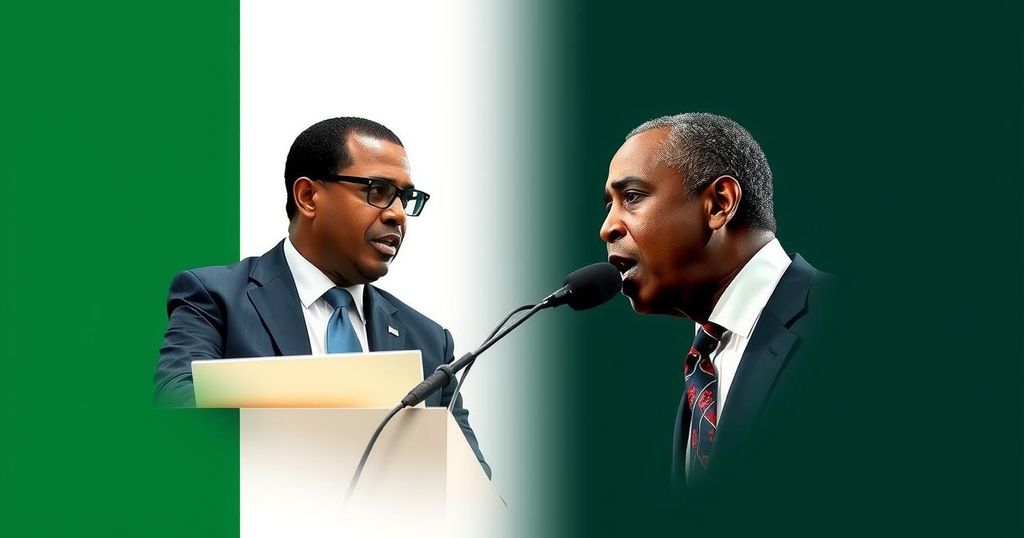World news
AFRICA, ALL PROGRESSIVES CONGRESS, ALL PROGRESSIVES CONGRESS PARTY, BOLA TINUBU, BUHARI, CORRUPTION, DEMOCRACY, GOOD, GOODLUCK JONATHAN, GOVERNANCE, JONATHAN, LABOR PARTY, LAGOS, MUHAMMADU BUHARI, NIGERIA, NORTH AMERICA, OBI, OPPOSITION, PETER OBI, POLITICS, UNITED STATES
Lena Nguyen
0 Comments
Reflections on Election Outcomes: A Nigerian Perspective on U.S. Democracy
The article reflects on the recent U.S. presidential election through the lens of a Nigerian journalist’s experiences with electoral politics in Nigeria. Despite high hopes for Peter Obi, he lost to Bola Tinubu, echoing similar sentiments regarding leadership challenges faced by Donald Trump in the U.S. The author stresses the need for humility and respect for others in post-election times to facilitate healing and unity within society.
The conclusion of the U.S. presidential election has left many individuals grappling with the reality of the outcome, particularly those whose chosen candidate did not prevail. Such feelings of disappointment are not foreign to those from nations where electoral outcomes have led to significant societal shifts. The author’s reflections on the Nigerian elections offer poignant comparisons to the recent political climate in the United States. He recounts his support for Peter Obi, the Labor Party candidate in Nigeria, highlighting the hope he represented amidst years of socio-economic decline under Muhammadu Buhari’s administration. Ultimately, despite passionate support, Obi’s candidacy faltered, leading to Bola Tinubu’s presidency, which many criticize as emblematic of the nation’s ongoing political malaise.
This disillusionment resonates with similar sentiments in the U.S. where Donald Trump’s presidency has sparked intense division. Comparisons are drawn between the two leaders: both faced accusations and controversies yet emerged victorious, prompting concerns about the moral fabric of leadership. The author emphasizes the importance of humility and unity post-election, positing that healing within societies requires a respectful acknowledgment of differing viewpoints.
As political landscapes continue to evolve, the necessity for genuine dialogue and reconciliation becomes increasingly apparent. Reflecting on experiences from Nigeria, the call for better political ethics and responsible leadership stands as a critical imperative for both nations moving forward.
As the U.S. presidential election concludes, many people find themselves navigating feelings of loss, especially those who supported candidates that did not win. This phenomenon is echoed in the author’s recounting of his experiences during Nigeria’s elections, where a seemingly hopeful candidate—Peter Obi—unexpectedly lost to Bola Tinubu. The author discusses the broader implications of electoral losses on the socio-political fabric of both Nigeria and the United States, and how these events showcase similar challenges regarding leadership, electoral integrity, and societal division.
In summary, both the Nigerian and U.S. elections reveal a complex tapestry of political disappointment, societal division, and the quest for unity. The narratives shared by the author highlight the need for humility and respect in the aftermath of elections to foster healing and reconciliation. As both nations grapple with the realities of their electoral outcomes, the emphasis on ethical leadership and the importance of bridging divides remains crucial for future governance and societal progress.
Original Source: baptistnews.com




Post Comment